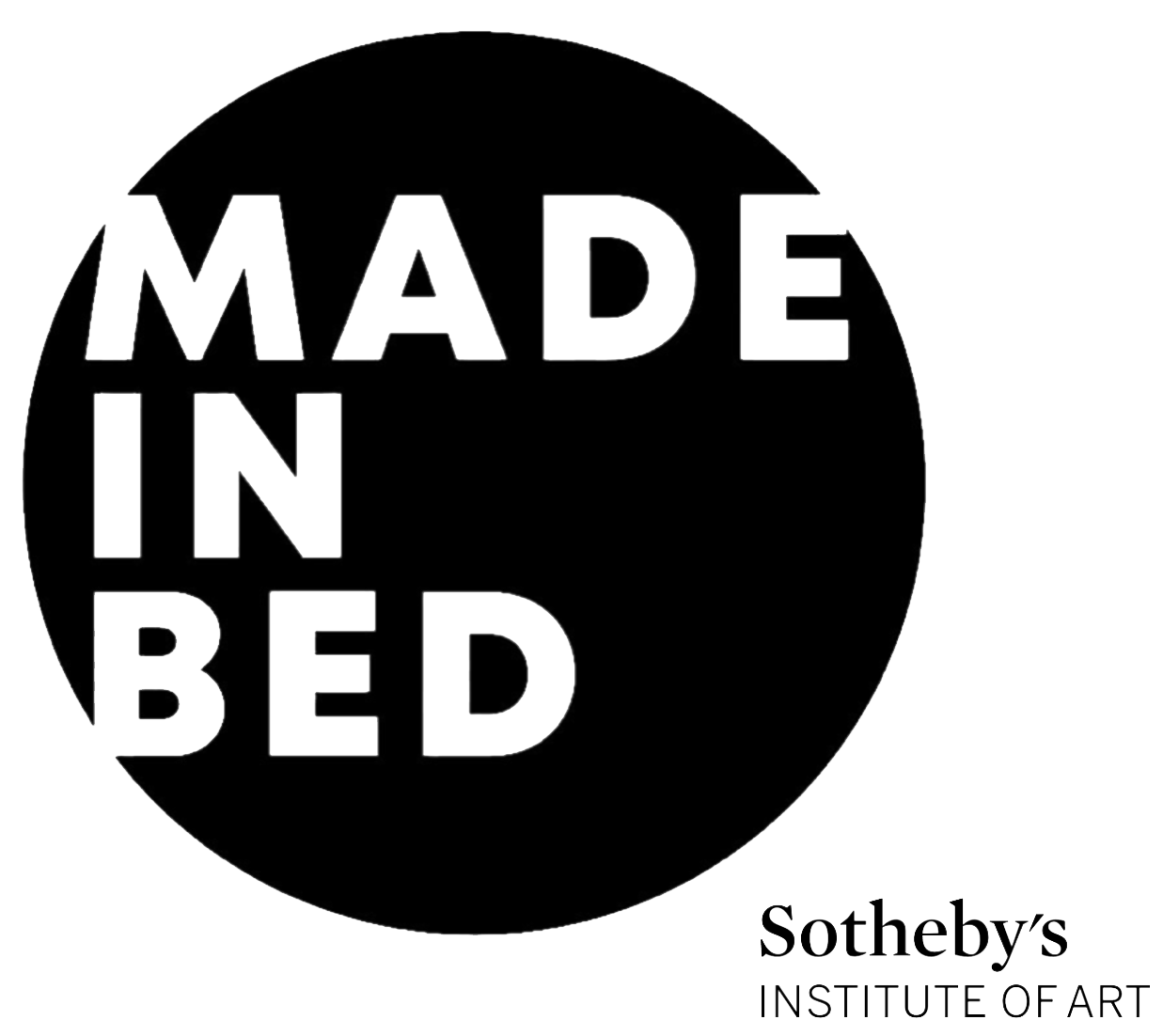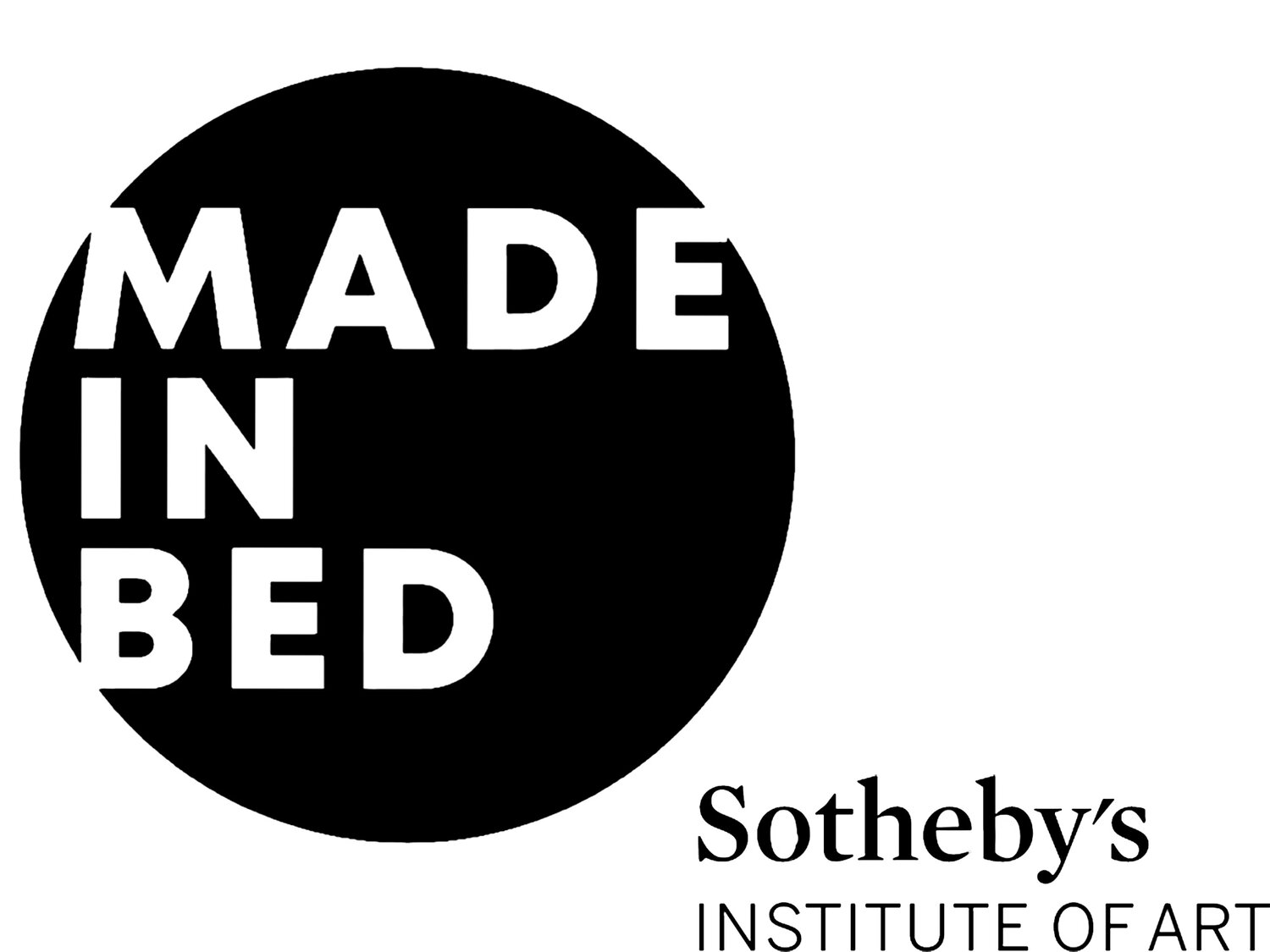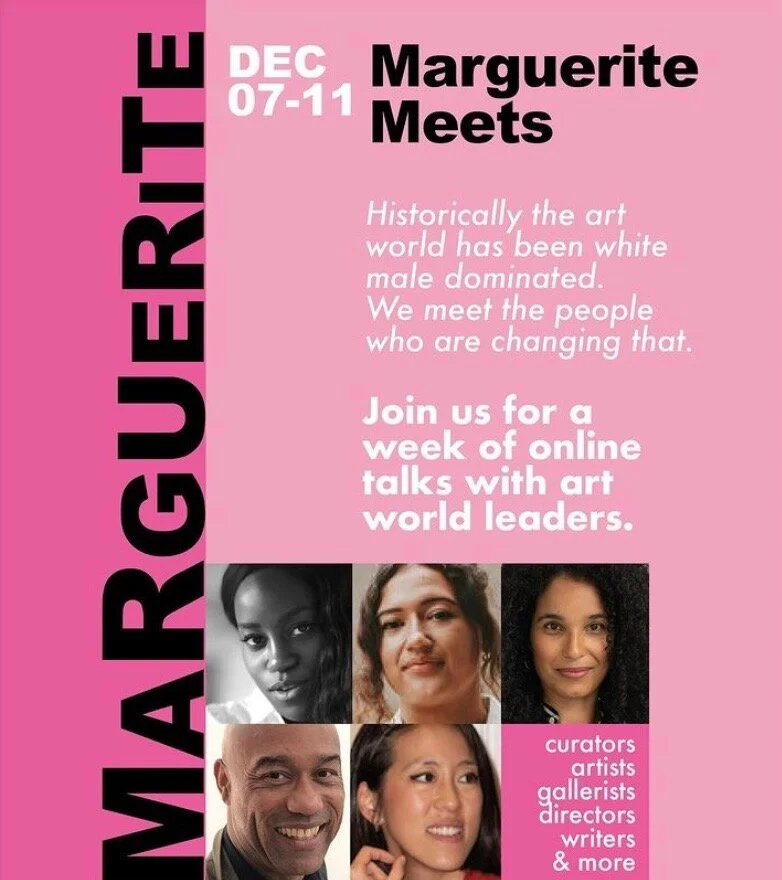Rachel Hansen in Conversation with Marguerite Founder, Joanna Payne
Joanna Payne by Dunja Opalko.
After working in the art world for several years, Joanna Payne observed that something had to be done about the fact that women often have a harder time realising their professional potential than men. As a result, she founded Marguerite, a club aimed at advancing women in the creative industries through a ready-made network of like-minded individuals. Marguerite, named after the eccentric art maven of the 20th century, Marguerite (Peggy) Guggenheim, strives to advance members’ careers through a series of intimate events hosted by some of the biggest names in art, fashion, photography and design today, including Director of the Tate, Maria Balshaw, fashion photographer, Rankin and art collector, Valeria Napoleone. Just before the holiday season, Joanna and I sat down to talk about her philosophy on genuine ‘networking,’ launching a business by women, for women and taking her company beyond the confines of London in 2021.
Rachel Hansen: Can you tell us about your background in the art world prior to creating Marguerite?
Joanna Payne: I studied History of Art at the University of Nottingham. I then went on to intern at Whitechapel Gallery for 3 months before starting my first paid role in the art world working on the Gallery’s annual fundraiser, ‘Art Plus.’ My first permanent job was for Frieze Art Fair where I spent over 5 years in the VIP department.
The role involved organising special events for the big artists, collectors and museum directors who came into town. As these ‘VIPs’ were people who could go to galleries and museums whenever they wanted, the events we organised would be more exclusive-feeling and would often take place in collectors’ homes or artist studios - something that later inspired the format of Marguerite events. After Frieze, I went on to be the Head of VIP Relations at Photo London, where I spent a year and a half and in which time, I set up Marguerite.
RH: What did you observe in the workplace that made you realize there was a need for something like Marguerite?
JP: I’d been working in the art world for seven years when I set up Marguerite. Whilst I had been treated fairly in my roles, I could see that many women in the industry frequently struggled to get the pay rises and promotions they wanted, whereas men seemingly didn’t come up against the same issues.
I remember once getting annoyed because a male colleague let slip at the pub one evening that he’d started on a lot more money than I had. I asked how he’d managed it and was surprised when he said that he had just asked for it! This is of course a sweeping statement but it is often the case that women don’t feel as confident to ask for pay rises and promotions - which of course results in them not happening. Unlike the corporate world where there are often set pay bands, the art world is much more flexible which can result in discrepancies and unfair pay.
I had been really lucky in my time at Frieze and Photo London, in that I had built up an incredible network across the industry which massively boosted my confidence. Marguerite was my way of sharing that network and confidence with other women.
RH: We’re now almost 6 years on from Marguerite’s genesis. What was it like getting Marguerite off the ground?
JP: The first event took place in my living room and was very much a case of me just inviting friends and friends of friends over for some drinks. That was all it was ever meant to be - a way of simply bringing women who worked in the industry together to meet and hopefully go on to build genuine, long-lasting friendships that may in turn help them with their careers.
A friend who was due to host the second event in her home cancelled a few days beforehand, so we ended up hosting it in a hotel. The formal environment and lack of focus meant that it felt like a very standard ‘networking event’ which was my idea of hell! After that small disaster, I decided that it was perhaps a lot to ask people to host events in their homes. I instead drew on my experience from Frieze and Photo London and began asking artists, collectors, curators, fashion designers and more to host our events and speak about their lives, inspirations and work. It was also so nice being able to open up this access to regular people like me and my friends as opposed to them always being reserved for wealthy collectors.
Six years on and we’ve had some of the most influential people in the art world speak for us. Museum directors like Director of Tate, Maria Balshaw and Director of the V&A, Dr Tristram Hunt; fashion designers like Dame Zandra Rhodes and Roksander; photographers like Rankin and Juno Calypso; and collectors like Valeria Napoleone, (who collects only female artists) and Maryam Eisler.
Artist, Linder Sterling in conversation in the home of patron, Valeria Napoleone – by Luke Fullalove (2019).
RH: How was your idea of an all-women club received by your peers in the industry?
JP: There was a real appetite for it. Back in 2015 when we launched, the art world really was run by men. As an example, the Directors of all four Tate galleries were men (fortunately now, three of them are women). Shortly afterwards in 2017, the #MeToo movement really gained momentum meaning there was a real focus on equality (or the lack of it!) in the art world and in society in general.
I was really surprised when around 40 people showed up for the first event that I hosted in my home. We formally launched Marguerite as a company after a year and it took another six months for me to actually leave my role at Photo London and take it on full time.
RH: How did it feel to take the leap and leave your full-time job?
JP: It was really scary. I underestimated how long it would take to start earning good money. I really struggled – I had gone from having quite a good salary to suddenly [living off of] whatever membership fees I could gather. It was really tough in the beginning. Launching a company with no financial backing is not for the faint hearted!
RH: What does Marguerite (Peggy) Guggenheim embody that so accurately reflects Marguerite’s vision and mission?
JP: We’re named after Peggy because she was just the most amazing woman. She didn’t have any formal art history training herself - instead, she learnt everything from the people around her. I love that concept and feel that it’s echoed in our events. To come to a Marguerite event, you don’t have to come with any formal art history training or know anything specific, it’s all about coming and sharing experiences and learning once you get there. Peggy was also just so eccentric. She had over 1000 lovers and used to sunbathe on the roof of her Venetian Palazzo in the nude. She also used to host many parties herself, but apparently, her food was absolutely disgusting!
She was also an incredible patron of the arts. She vowed to save a painting a day during World War II and without her, seminal pieces by people like Klee and Kandinsky literally wouldn’t exist.
Marguerite’s takeover of Tate Lates at Tate Modern by Dunja Opalko (2017).
RH: What is your branding strategy? What kind of image do you aim to curate for Marguerite?
JP: I was really lucky at the beginning. Two friends who were the graphic designers at Frieze offered to come up with the whole brand identity and allowed me to pay them back once I’d started making money. The initial identity was all inspired by Peggy Guggenheim. You’ve probably seen our Marguerite “M” that was based on the shape of the amazing glasses she wore.
Peggy Guggenheim in her iconic glasses, courtesy of margueritelondon.com.
Marguerite’s logo inspired by Peggy’s glasses, courtesy of margueritelondon.com.
In terms of the overall look and feel of Marguerite, we actually changed it at the beginning of this year to be more fun and accessible; especially now that we’re doing so much online, I think that’s really important. I wanted all of our branding to feel fun because the actual subject matter is quite serious. Marguerite events echo that - we’ve had some really high-level speakers but the events themselves are designed to feel relaxed and welcoming. The branding is now brightly coloured and eye-catching which is perfect for online [content].
RH: Women often compare and compete with one another, how do you at Marguerite expel this and promote uplifting one another?
JP: This is one of the biggest reasons I started Marguerite. I have really experienced that. A lot of people have asked me, “Are you starting Marguerite because you don’t like men?” But that has absolutely nothing to do with it. I’ve been really supported by men throughout my career but not always by women. Marguerite is all about lifting each other up rather than holding each other back. Even I will sometimes hear that a friend who has also launched a company is doing really well and there is that little moment where you think, “oh god, I’m so jealous.” I’ve found it’s much more productive to try to spend that energy supporting them in some way – you could repost an Instagram of their work or put them in touch with someone who you think might be a good contact. I believe in karma; all that stuff comes back to you. We really encourage that at Marguerite and also try to make our events feel welcoming and not ‘cliquey.’
Photographer, Juno Calypso cutting a cake inspired by her work with writer, Maisie Skidmore at Palm Vaults (2018).
RH: Networking is often associated with surface-level relationships. How important is building your network and how do you facilitate meaningful relationships?
JP: Absolutely. Even the word ‘networking’ makes me recoil! There’s nothing worse than the type of stale networking event where you’re expected to just go into a room and introduce yourself to strangers. To enable our guests to make genuine, meaningful relationships, we work hard on making our events fun, relaxed and welcoming spaces to be. Our events are always held in interesting places (whether it be a collector’s home, artist’s studio or a posh hotel you wouldn’t usually go to) and there is always ‘content’ - mostly in the form of a talk. It means that if you’re not sure what to say to the stranger in front of you, you can always talk about the space or what it was about that particular event that attracted you!
One thing that I think sets our events apart is that you’re not encouraged to bring a guest. This means that people most often come on their own which forces you to speak to new people rather than standing where the canapés come out with your housemate who you see every day!
Marguerite members at Chiltern Firehouse (2019).
[Our] events are about actually building friendships in a way that you would build a friendship in any other area of your life. When I worked at Frieze, I worked really long hours and sometimes I’d be calling someone at 10 o’clock at night being like, “Can you help me with this?” And because we were friends, they would. I think that’s it; just going in and being really genuine, being yourself and making a true friend rather than thinking about it in a networking way. You never know how or when that person might be able to help you or you might be able to help them.
RH: How do you stay away from traditionally ‘stuffy’ networking events?
JP: For me, the venue makes a huge difference. Our events won’t ever be held at a horrible conference center. We try to have them in exclusive feeling environments that you might not otherwise get to go to. Part of the joy is getting to go to a new and exciting place every time.
Before guests arrived for an event hosted by photographer, Nick Knight in his SHOWstudio (2017).
We always try and mix it up with the food and drink so it’s not always the same old thing. It will be something relevant and fun, or even slightly themed. We had a party this time last year with a fashion brand called KITRI. They wanted to do something around their new Christmas collection that was 70s inspired, so we had this big 70s disco. All the food and drinks were 70s inspired and we had a drag act performing as Grace Jones. We just try to be really fun and creative and think about what we would like to go to, as [my team] is essentially our target market.
The Only Bourgeoisie performing at The House of Voltaire by Dunja Opalko (2016).
We all work in the art world because we appreciate the aesthetics and the experience of things. To do something really corporate and stuffy just wouldn’t really appeal to our audience.
RH: Marguerite has achieved a great deal of success over the last 6 years. What are you most proud of?
JP: Genuinely, seeing people build those real connections and form projects with each other, or just become really great friends. Seeing Marguerite actually work, that’s what I’m most proud of because that’s what it’s all about.
Marguerite members at Tonight Josephine by Holly Whittaker (2017).
RH: What would your advice be to young, aspiring entrepreneurs?
JP: Number one, just do it. I think a lot of people get really scared of the thought of launching a business. It seems like such a big thing and fear holds so many people back. A lot of people think that they have to pay for website developers and that sort of thing, whereas actually you can do so much yourself. You can literally start something from your bedroom with very low costs. Now is the perfect time when no one has much going on compared to what we had before. Don’t be scared and just ask as many people as you can for help. I was lucky in those early years, many of my friends just wanted to help me. I had never opened a company before, so I didn’t know what I was doing but I had friends who had. I didn’t know how to make a sponsorship deck, I didn’t know how to do a risk assessment form, I didn’t know how to get insurance or build a website, but you’d be surprised by how many people want to get involved. Don’t ask, don’t get! The worst that can happen is people just say no.
RH: Given that in-person events are Marguerite’s bread and butter, how have you adapted to the digital realm and what does the future look like?
JP: We’ve hosted a number of online programmes since last March - initially all on IGTV and more recently, on Zoom. They obviously feel completely different to IRL events, but it’s been interesting getting to grips with an entirely different model! On International Women’s Day 2021 on the 8th March, we’ll be launching a global online membership which is something we’ve wanted to do for a while, but obviously now is the time to be doing it!
The ad for ‘Marguerite Meets’ – a week of talks hosted by Marguerite with people from BAME backgrounds working in the arts. Designed by Rosie Levine (2020).
The online membership will make Marguerite so much more accessible. Up until now, Marguerite has been very London-centric, so this will allow us to include people from across the globe but also the price point will be much lower than some of our other memberships, which again will make it so much more accessible. Ultimately, that is what Marguerite is all about – making the art world more accessible.
Thank you, Joanna.
Images courtesy of Marguerite.
Visit Marguerite’s website to find out more about becoming a member and to view the event schedule for winter/spring 2021. Follow Marguerite on Instagram @margueritelondon.
Rachel Hansen,
Interviews Editor, MADE IN BED












